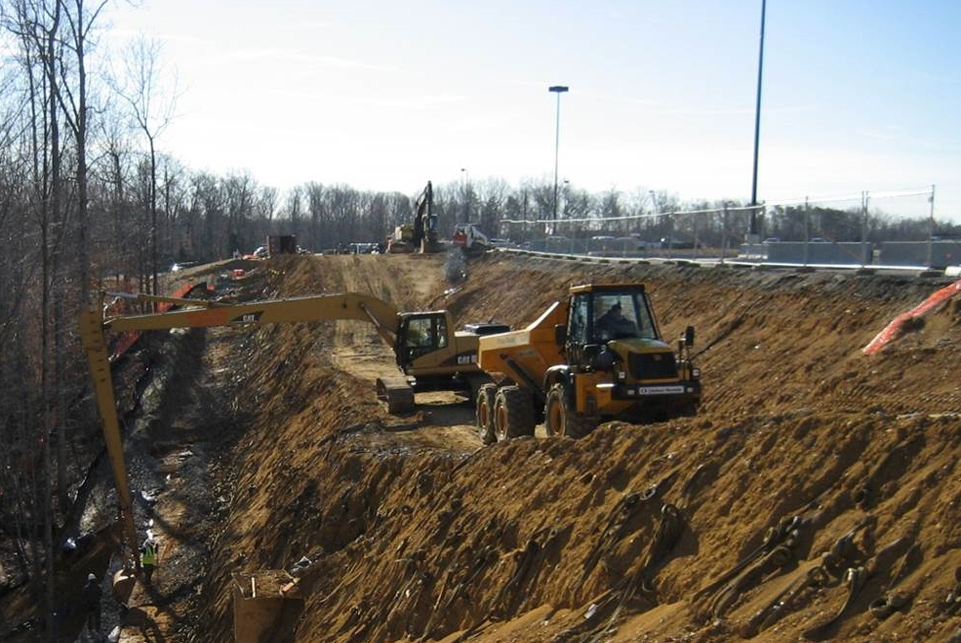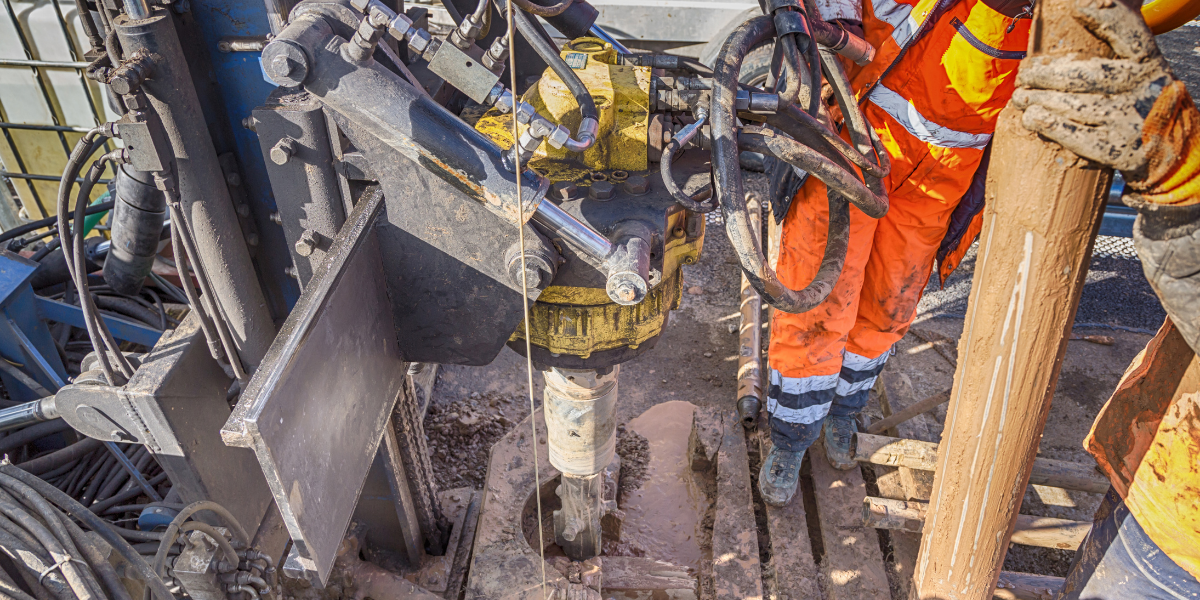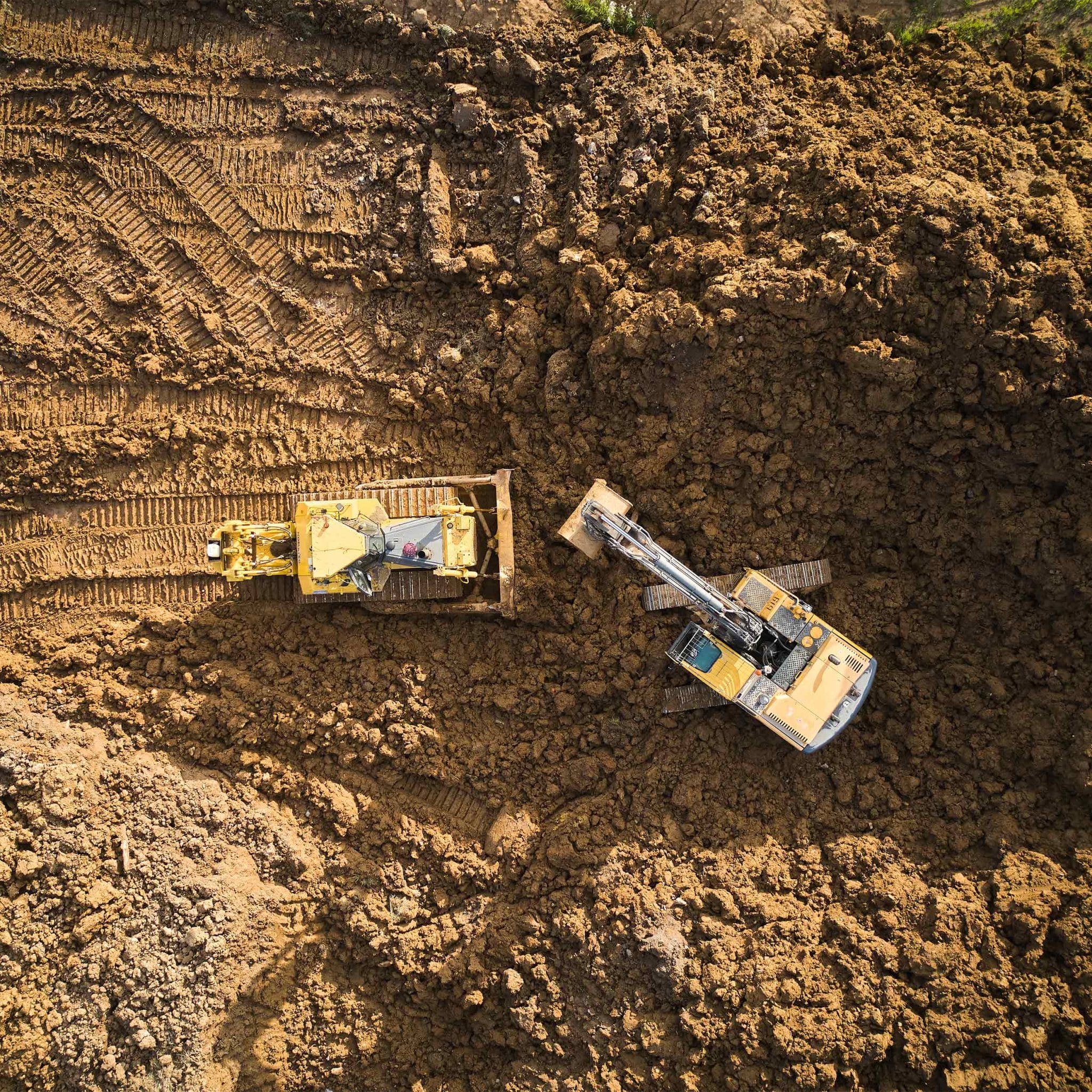Checking out the Benefits of Geo Tech Engineering for Urban Planning
Checking out the Benefits of Geo Tech Engineering for Urban Planning
Blog Article
A Detailed Overview of the Key Duties of Geotechnical Engineers in Website Characterization and Ground Enhancement Strategies for Engineering Solutions
Geotechnical engineers are integral to the effective implementation of engineering jobs, entrusted with the critical obligations of site characterization and the application of ground enhancement techniques. Their job entails a comprehensive analysis of subsurface problems, using different testing methods to identify dirt and rock residential properties.
Function of Geotechnical Engineers
Geotechnical engineers play a critical duty in the layout and building of facilities by examining the behavior of dirt and rock underneath the surface - geotech engineer. Their responsibilities incorporate examining subsurface conditions to inform layout choices that make sure structural security and security. By carrying out detailed evaluations of soil residential properties, including shear leaks in the structure, compressibility, and stamina, geotechnical designers supply vital data that affects the option of suitable construction products and strategies
In addition to assessing dirt auto mechanics, geotechnical designers are charged with recognizing prospective threats such as landslides, sinkholes, and ground negotiations. Their competence aids reduce threats associated with these geotechnical phenomena, therefore protecting both the setting and public safety and security. They also work together very closely with various other engineering disciplines, making sure that geotechnical factors to consider are integrated into general task design.
Additionally, geotechnical designers involve in the evaluation of existing structures, supplying referrals for retrofitting and repair work when essential. Their extensive understanding of soil-structure communication is important for the development of lasting infrastructure solutions. In general, the function of geotechnical designers is essential to the successful realization of building and construction tasks, guaranteeing they are secure, durable, and certified with governing criteria.

Site Characterization Procedures
Efficient website characterization processes are crucial for comprehending the subsurface conditions that influence task style and implementation. Geotechnical designers employ an organized method to collect, evaluate, and translate information regarding dirt, groundwater, and rock attributes. This process begins with a thorough evaluation of existing literary works and historical website information, offering understandings right into previous website conditions and prospective obstacles.

Data evaluation complies with fieldwork, where engineers make use of geostatistical techniques to translate findings and develop geological versions. Via diligent website characterization, geotechnical engineers lay the foundation for effective project execution, reducing unexpected issues and maximizing resource allocation.
Dirt and Rock Screening Approaches
While understanding subsurface conditions is critical, the option of appropriate soil and rock testing approaches is similarly vital for exact evaluation and style. Geotechnical designers utilize a range of screening methods to assess the mechanical and physical homes of dirt and rock products.
Lab examinations, such as Atterberg restrictions, grain dimension evaluation, and unconfined compressive strength examinations, give essential information on soil actions under various dampness problems and loading circumstances. These examinations aid determine soil category and predict settlement or shear strength attributes crucial for structure design.
In-situ screening approaches, including Requirement Infiltration Tests (SPT), Cone Penetration Examinations (CPT), and pressure meter examinations, allow engineers to collect data directly from the ground. These approaches provide valuable insights into the soil's density, consistency, and stratification without the demand for comprehensive sampling.
Rock testing normally involves core tasting and lab evaluation to analyze properties like uniaxial compressive toughness and rock high quality designation (RQD) With each other, these soil and rock screening approaches enable geotechnical engineers to make enlightened choices relating to site-specific difficulties, guaranteeing the safety and stability of engineering solutions.
Ground Improvement Methods
Ground improvement strategies are important for boosting the design residential or commercial properties of soil, thus raising its load-bearing ability and decreasing negotiation. These techniques are critical in resolving obstacles offered by weak or problematic soils, which can dramatically influence the stability and longevity of frameworks.
Numerous ground enhancement techniques are utilized, including compaction, grouting, and soil stabilization. Grouting, on the various other hand, includes injecting a fluid product right into the ground to fill up spaces and enhance dirt communication.
Soil stabilization incorporates a series of techniques, from chemical additives to mechanical therapies, aimed at improving the dirt's resistance to disintegration and deformation. Methods such as lime stablizing or cement mixing modify the properties of the soil at a particle degree, enhancing its total efficiency.
Importance of Geotechnical Assessments
Geotechnical analyses play an important function in the planning and style of design projects, as they supply necessary details about the subsurface problems. Comprehending dirt residential or commercial properties, rock geotech engineer developments, groundwater levels, and potential geohazards is vital for making certain the stability and safety of frameworks. These assessments allow designers to make educated decisions pertaining to site option, design criteria, and construction techniques.
The importance of geotechnical evaluations extends past initial task phases; they contribute in danger management and expense effectiveness. By recognizing prospective problems early, such as dirt negotiation, incline instability, or extreme groundwater, designers can develop proper mitigation methods, reducing the probability of expensive hold-ups and structural failures. These assessments support compliance with regulative needs and improve the sustainability of engineering practices.

Conclusion
To conclude, geotechnical engineers are vital to ensuring the security and security of engineering jobs via extensive website characterization and ground enhancement methods. geotechnical eng. Their systematic approach to examining subsurface conditions, incorporated with their referrals for reliable ground alteration, considerably enhances dirt buildings and load-bearing capability. The experience of geotechnical engineers not only helps with educated project planning however likewise ensures compliance with regulations and fosters effective interaction among stakeholders, eventually adding to effective design look at this website outcomes
Geotechnical engineers go to this web-site play a pivotal role in the design and building of infrastructure by analyzing the behavior of soil and rock under the surface. By performing thorough analyses of soil homes, consisting of shear leaks in the structure, stamina, and compressibility, geotechnical designers give important information that affects the option of proper building materials and methods.
In enhancement to assessing dirt technicians, geotechnical designers are charged with determining possible risks such as landslides, sinkholes, and ground settlements. Geotechnical designers utilize a methodical approach to collect, review, and analyze data regarding soil, groundwater, and rock attributes. By determining prospective problems early, such as dirt settlement, slope instability, or excessive groundwater, designers can design suitable reduction methods, reducing the chance of costly hold-ups and structural failings.
Report this page